
Our gardens are not large, at least not in comparison to what we had on the acreage, so the task was quick. My photo challenge, on the other hand, has been anything but!
I’m digitizing all our photographs in an attempt to turn them into manageable chapters of our lives that will be accessible to our children. About ten years ago, I got a great start on the project when I made photo books of the twenty-ish years of raising our kids. Since then I’ve wanted to scan the rest of the pictures too, the ones from Jim’s and my earlier days, and days even earlier and later than those. I have scanned and labelled thousands of pictures. I’ve almost reached the bottom of the last two bins!
This week, as I was scanning our school pictures, I came across an old post card. On the front was a picture of the main stadium of Olympic Park in Montreal. On the back was a short message written to me by Whitey Sheridan. Whitey was an iconic figure in the running community in Southern Ontario. In 1976, I really had no idea exactly how iconic he was. At the time, our country was preparing to welcome the 1976 Olympics to Montreal, and I somehow qualified for, and was allowed to enter, the Junior Olympics. I say somehow, because these practices occurred during the springtime, planting time on the farm, and with ten children in our family, and one van, our parents were not in the habit of ‘driving us all over the countryside’. My sister Shelley, and brother David, were also part of the Junior Olympics, which I think helped greatly in the decision to drive us to practice. Shelley was a better runner than I will ever be. I just got lucky to hitch a ride and be able to participate.
I remember Whitey well and I’ve mentioned him over the years as a cultivator of my love of running. He was our coach; a middle-aged man, with a shock of white hair, and a passion for running and training others to run. He was a task-master, giving me perhaps my first taste of the effort it would take to become good. Once our Junior Olympics had come and gone that spring, Whitey continued his coaching adventure all the way to the Olympics where he was involved with the track team. I haven’t been able to track down his exact involvement with the Olympics that year. I do know that Whitey himself came close to competing at the Olympic level when he finished third at the 1948 Olympic trials in Montreal. What I do know for sure is what he wrote on the little post card he sent to me that summer.
Hi. Busy with preparations for games and getting ready for opening tomorrow. Seen many athletes. Keep it up, it’s great to make a team. Regards, Whitey.
I had forgotten all about that postcard. I had forgotten I had ever received it. For forty-four years I have packed it around the country, from house to house, in a bin with photos, never, ever realizing I had it. And yet, when I read it, it was so familiar to me, as to be a part of the very fabric of my being. I recognized it instantly, as if it were an old friend who had changed, and yet not changed at all. What Whitey did for me was to plant a little seed. I’m not sure I recognized, when I was a teenager, the effort Whitey went to send this card. I assume he sent one to each member of our Junior Olympic Team. This was a man, busy at the Olympics, the night before opening ceremonies, who took time to write a little card of encouragement to a girl who loved to run.
I never saw Whitey again. I remembered him but I didn’t really think about his impact on me. And yet, a little seed had been planted. Over the years, whether I consciously thought about it or not, the seed grew into a love I gained for the sport of running, and into a series of travel adventures and opportunities to race. He somehow allowed me to believe ‘I could’. What a gift that seed was.
This morning I was out for a bike ride. I talked to the knee clinic yesterday and I’ll just say they are not as hopeful as I am that I may run again. If I had to guess, I’d say they were a solid ten percent. I’m hanging in at around 80%. So, as I continue to rehab, and strengthen, I bike. I rode up behind a father and his young daughter on the bike path. I’m guessing she was about 5 years old. She was riding her two-wheeler along the path in front of her dad. It was very obvious this was new to her. She wobbled as she worked hard to keep her little bike on the right side of the yellow line. I didn’t want to startle her so I settled in behind the dad until I could figure out when it might be safe to pass. The dad sensed my presence and just continued to bike along behind his little girl. He was watching her carefully, but not offering any more advice than was absolutely necessary. When we came to an open stretch of pathway, I quietly asked him if he thought it was safe to pass – I was actually quite content to ride along behind and watch her progress but I didn’t want to make anyone uncomfortable. The dad quietly answered that yes, it was ok. So, I did. And the little girl was delighted that she stayed on ‘her side’. And I wondered if the father had any idea of the seed he had just planted.
This dad could have done a lot of different things. He could have suggested they stop, to let me pass. He could have given her an alarming warning that someone was going to pass. He could have reminded her to ‘be careful!’. He did none of this. What he did was allow her to be an equal biker, on a public path. She had every right to be there and to be biking. She had every right to go her speed. She had every right to occupy her full space. What her dad did, was plant a seed in her, to let her know she is just as worthy as anyone else to be on the path, following the rules like everyone else. He let her know she is capable and he trusts her. I loved it.
We are all restricted these days. There are lots of new rules to follow and to get used to. But there is no restriction at all on seed planting. In this time of spring, as Whitey did so long ago for me, and that father did for his little daughter, I challenge each of us to find a seed to plant. We may never, ever, think about it again or see its fruition. I know from experience though; seeds can be life-changers.
My inquiry for you this week is, ‘What seed am I planting?’
Elizabeth is a certified professional Leadership Coach, and the owner of Critchley Coaching. She is the founder and president of the Canadian charity, RDL Building Hope Society. She works with corporations, non-profits and the public sector, providing leadership coaching. She creates and facilitates custom workshops for all sizes of groups. She has particular expertise in facilitating Strategic Plans for organizations. Contact Elizabeth to learn become an impactful gardener.
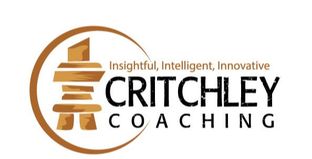
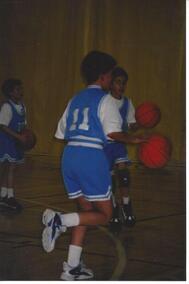

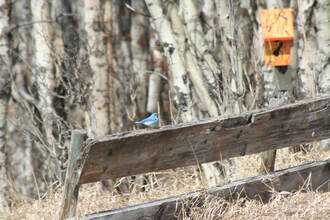
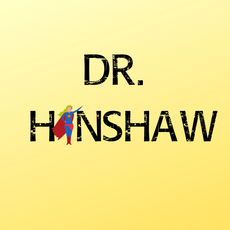
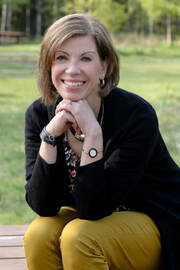
 RSS Feed
RSS Feed